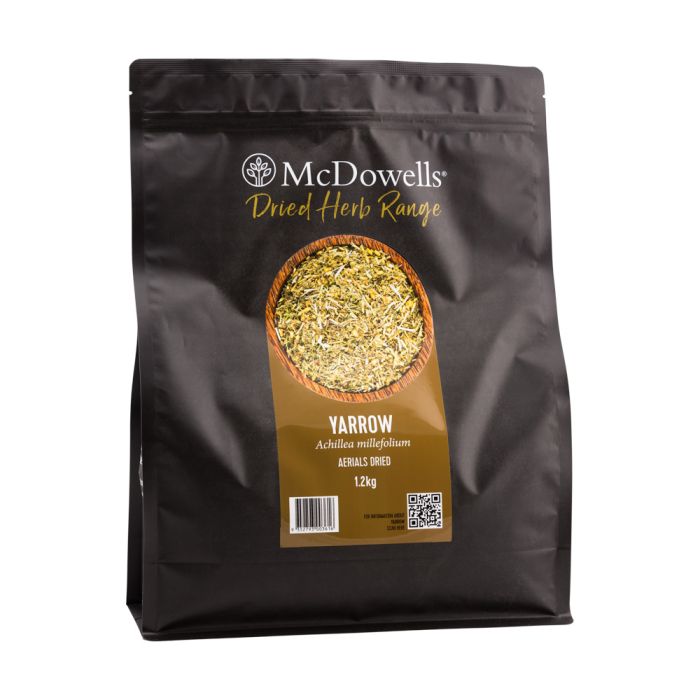
Yarrow
Product Information
Description
Botanical name: Achillea millefolium
The plant's Latin name is derived from the Greek hero Achilles, and yarrow was supposedly used to cure wounds during the Trojan Wars. Its common moniker, "nosebleed," attests to its historical usage as an emergency styptic to halt bleeding in first aid situations. Because soldiers used it to scab over their wounds, it was known as the "herba militaris" in classical times. Yarrow's main uses now are for treating colds and influenza, as well as for its effects on the digestive, urinary, and circulatory systems.
Similar to other bitter herbs, yarrow is used as an appetite enhancer and digestive tonic because of its capacity to increase gastrointestinal secretions and reduce spasms in the GI tract's smooth muscle. This antispasmodic action on smooth muscle has also been used to treat menstrual discomfort by easing the painful cramps that occur during the menstrual cycle.
Yarrow is also used as a herb to treat fever, the flu, and colds. Without overly suppressing symptoms, its diaphoretic and febrifuge effects—promoting perspiration by improving peripheral circulation and helping the body lower fever—can provide therapeutic comfort.
